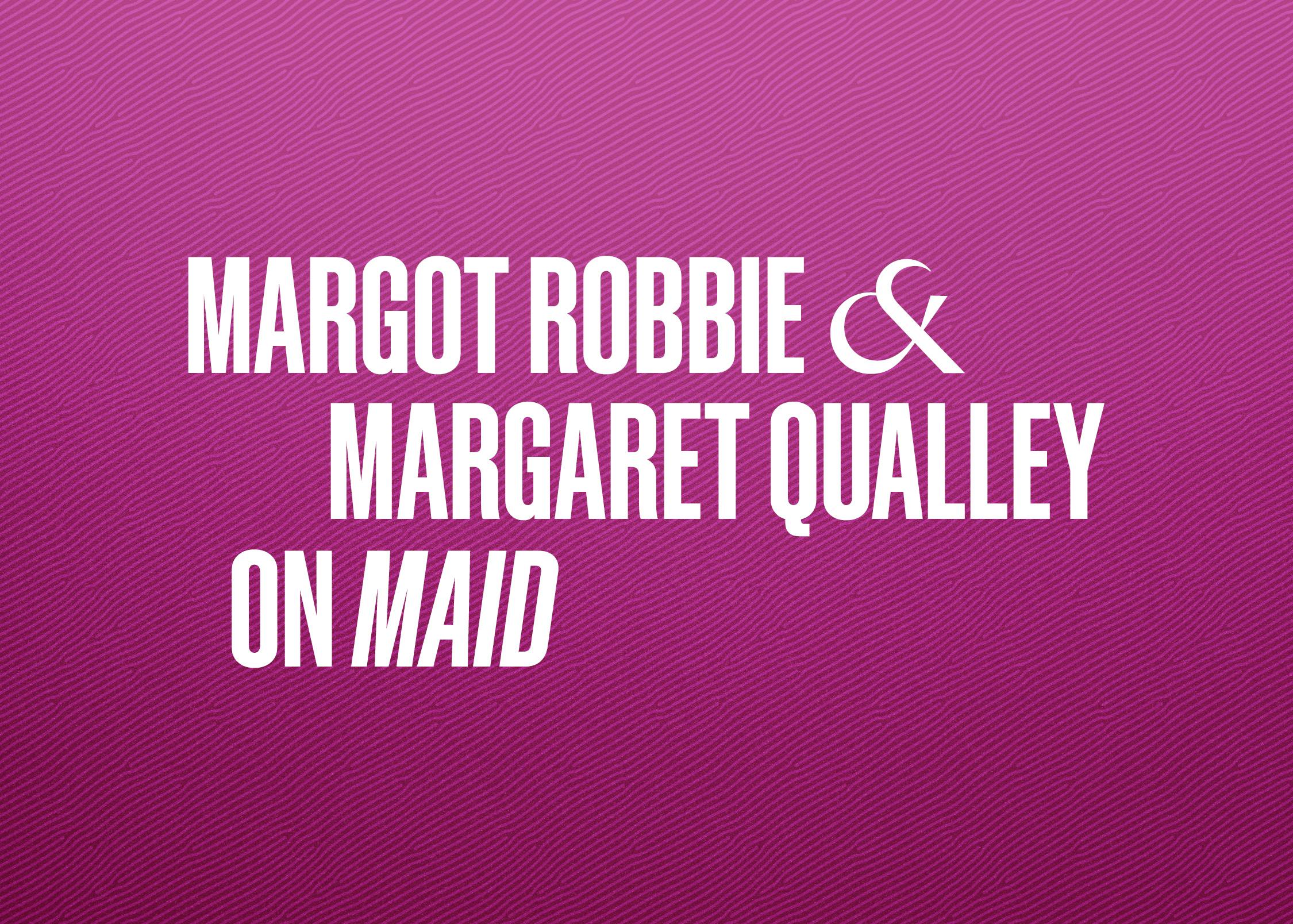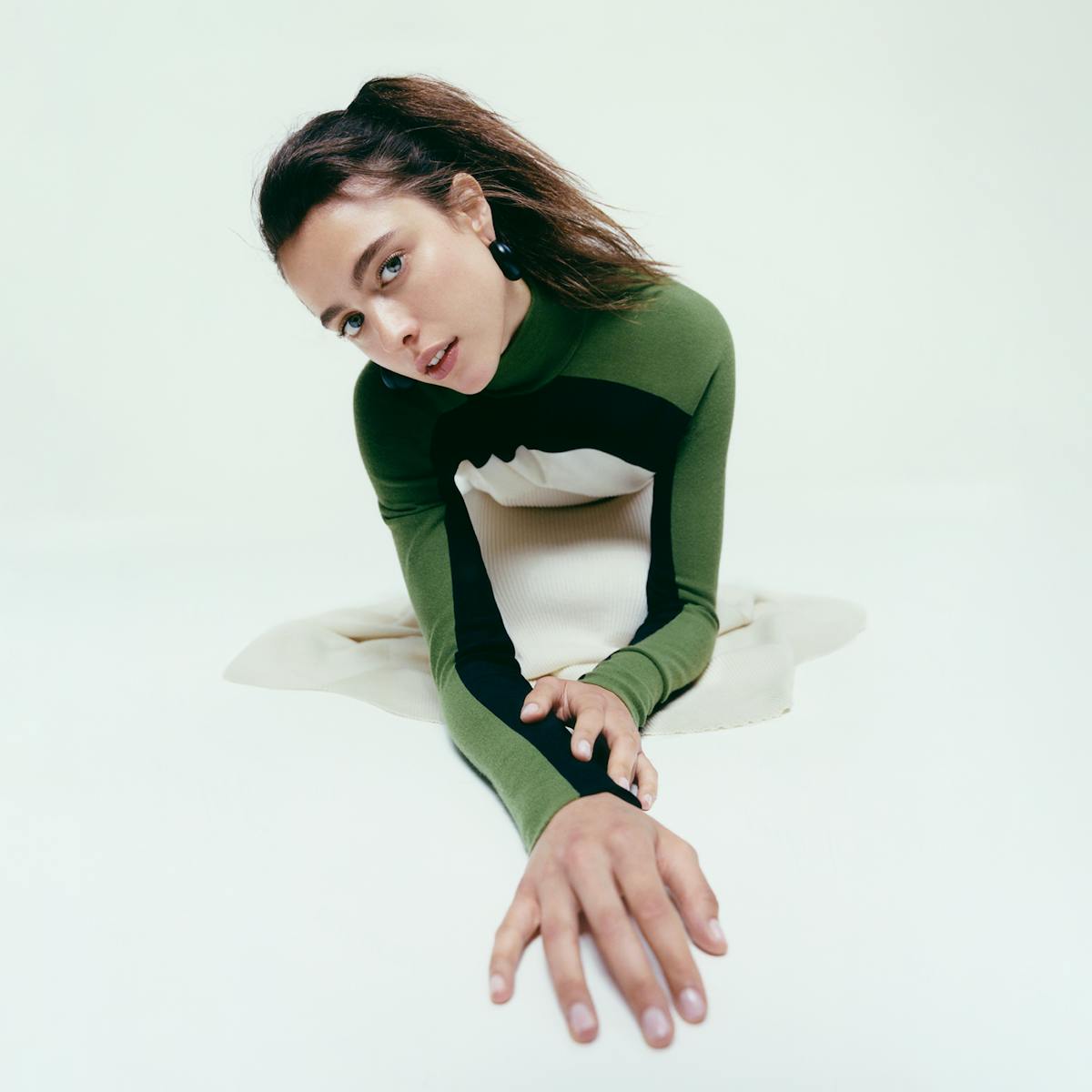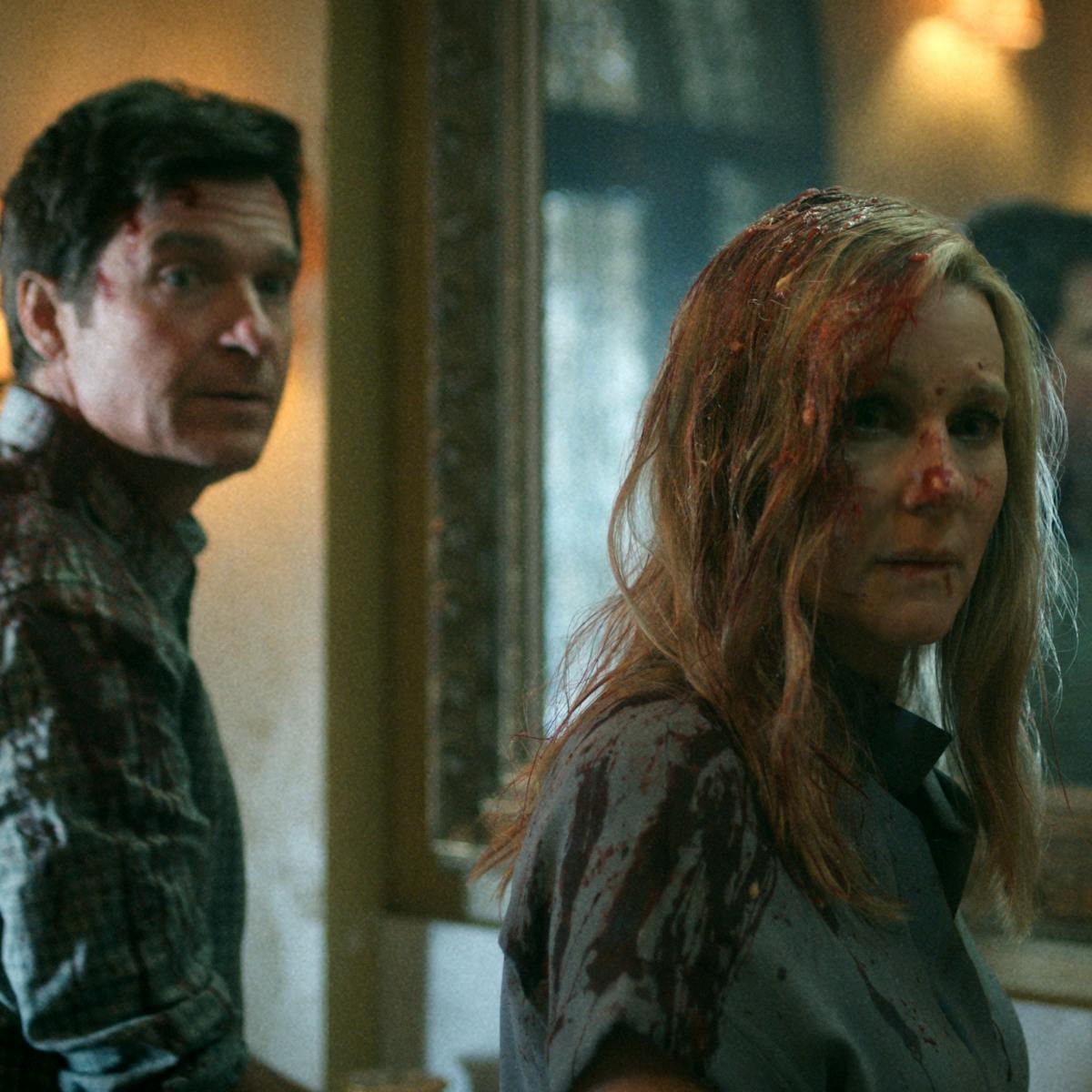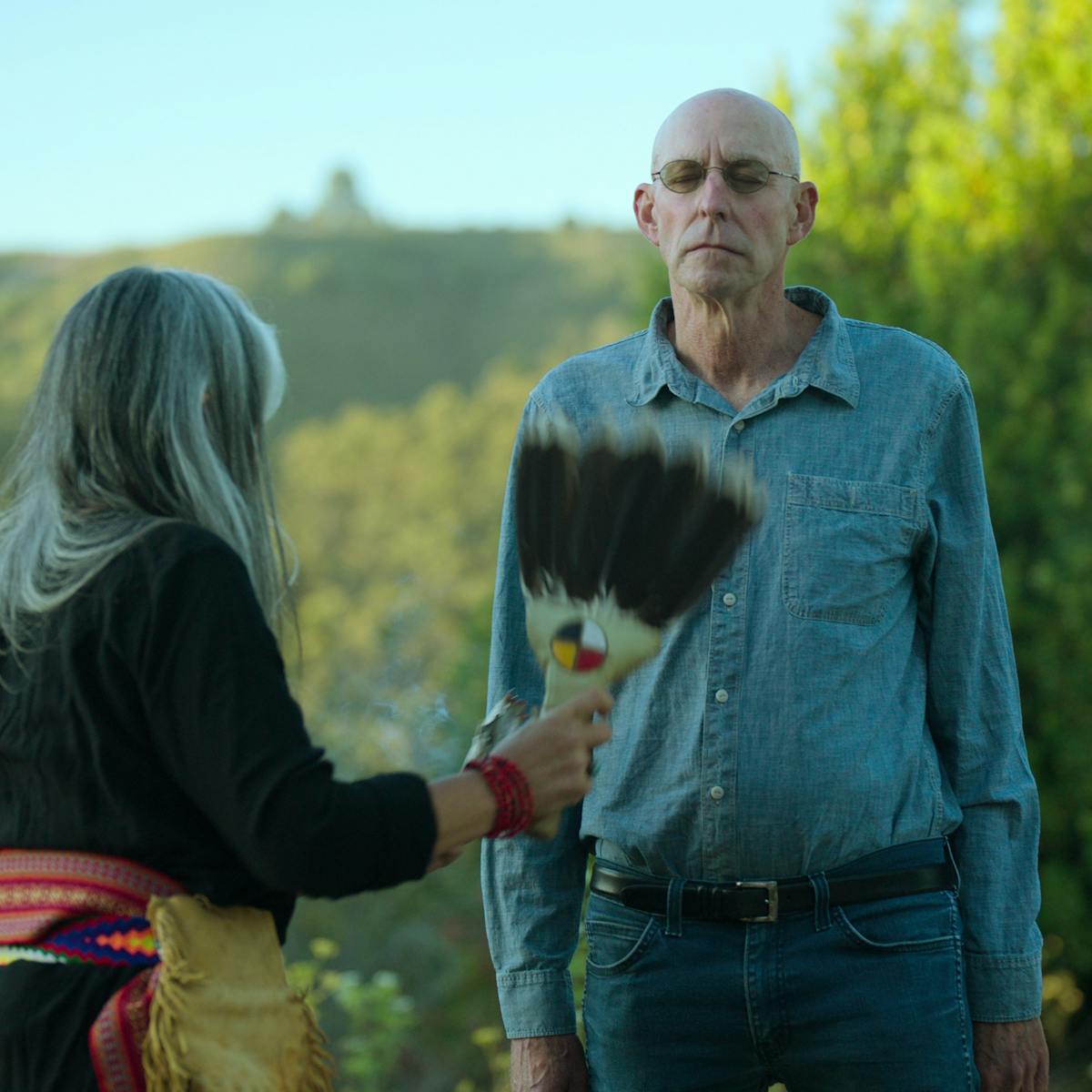With Maid, actor Margaret Qualley and co-executive producer Margot Robbie tell a story of tenacity in the face of poverty and abuse alongside a women-led production team.
Co-executive producer Margot Robbie and star Margaret Qualley are just two of the many women behind the thoughtful limited series MAID. Adapted from Stephanie Land’s memoir Maid: Hard Work, Low Pay, and a Mother’s Will to Survive and helmed and adapted for the screen by showrunner Molly Smith Metzler (Shameless) — who has received an Outstanding Writing For a Limited Series Emmy nomination for her work— MAID follows young mother Alex (Margaret Qualley) as she navigates impossible situations rarely depicted with such nuance onscreen: domestic abuse, single motherhood, abuse shelters, grueling jobs with little pay, loneliness, and so on. Qualley’s performance encapsulates a range of complicated emotions, presenting a human, brave portrayal of what so many people face every day.
Robbie is, “not the only person in the Margaret Qualley fan club,” as she puts it: Qualley, Emmy-nominated for her role in Fosse/Verdon, has already been nominated for SAG, Golden Globe, Critics’ Choice awards, and the Emmy for Outstanding Lead Actress in a Limited Series for her work on MAID. Shocked and humbled by this success of the limited series — which boasts three Emmy nominations total, Qualley hopes MAID will continue to inspire more conversations about and onscreen depictions of what Robbie calls, “the gray area,” difficult situations portrayed with truth, however messy, rather than painted over with the narrative clarity of so many Hollywood projects. Here the two discuss why they believe in this project, and how Qualley approached such a difficult role.
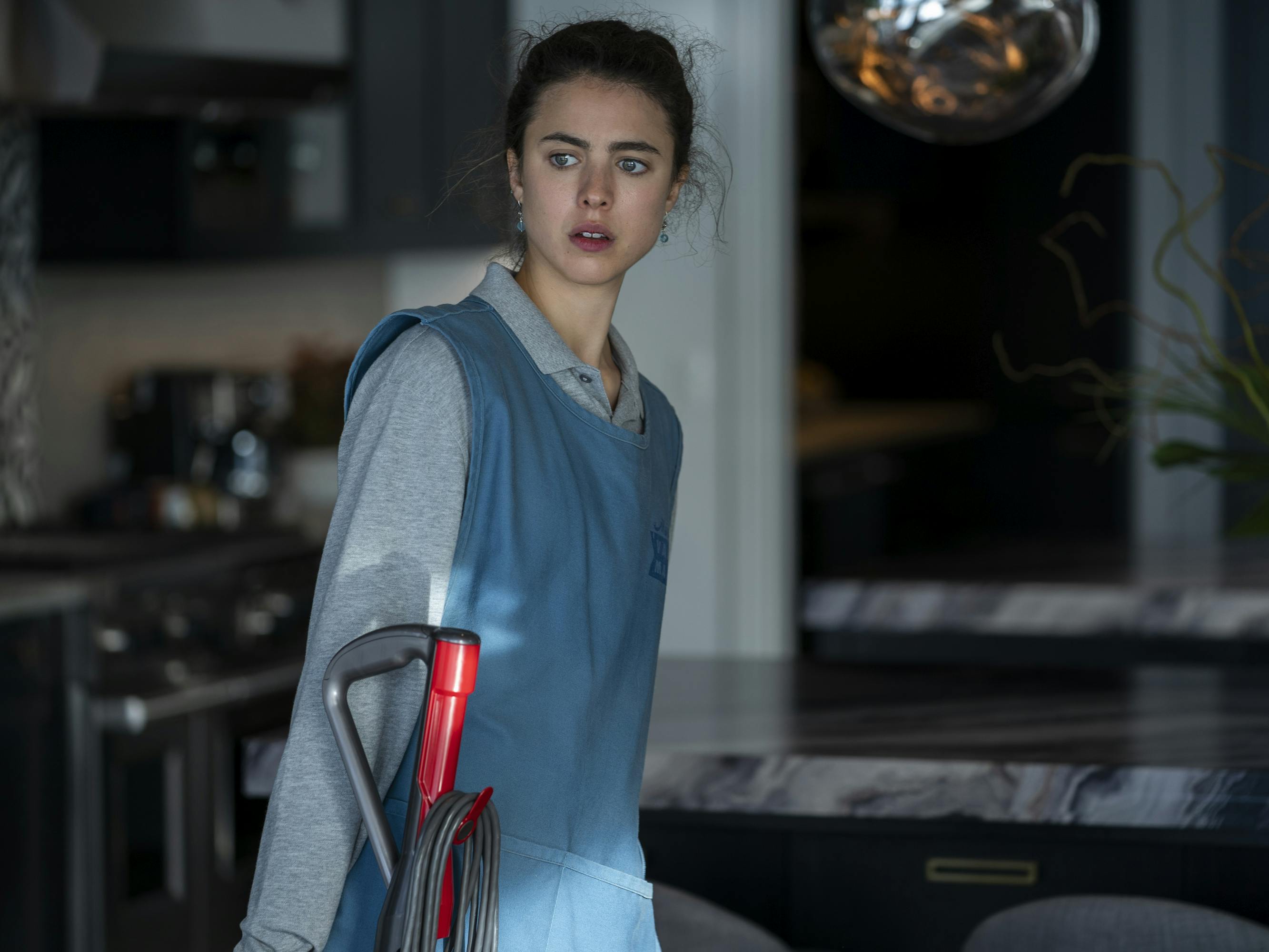
Alex Russell (Margaret Qualley)
Margot Robbie: As an actor who loves other actors, I’m always so curious how everyone goes about finding their role because I feel like it’s different for every role and every person. I love getting to have these chats with you and getting to find out how you approached this project.
Margaret Qualley: I feel lucky to be talking to you. It’s crazy — you interviewing me — the roles should be reversed because I just have all the questions to ask you and I look up to you.
MR: Tell me how you felt about this character before filming it and how you feel about this character now.
MQ: I think I’m one of those people that feels like, whenever presented with something, I just must handle it. And I think I felt that way about MAID, and about Alex, when it first came my way. Even before I got the part, I was just like, Okay, must do a very good audition and get this part and be a believable mother. So I didn’t spend too much time thinking about the character, it was more just thinking about how to do an okay job.
The obstacles were the only thing I could take in — making Rylea [Nevaeh Whittet], who plays Maddy, love me or making sure that I never seem like I feel sorry for myself or anything like that. After I shot the thing, I felt a lot more empathy for the character because when you’re trying to play the character, you’re kind of just taking life as it hits you within their world.
Now that MAID has come out and the conversation amongst people that watched the show has been so mind-blowing to me and so rewarding, it’s made me love her even more. The more that I’m able to kind of — with time and distance — look back at the character, the more love I feel for her.
MR: You mentioned Rylea, the actress who plays your daughter in the show. I know I’ve said this before, but the relationship you created with her is so incredible. It really translates so well onscreen. That’s in large part because you worked so hard at that; you put the time in well outside the work hours. You were there on weekends making her pancakes if you were going to make her pancakes in a scene. The level of dedication never ceases to amaze me. Can you tell me a little bit about creating that?
MQ: I was just in survival mode a lot of the time, which was great because I couldn’t be nervous about anything because I was just like, Must keep four-year-old happy enough to be in my arms. Must keep four-year-old in this room and ideally saying this line. I didn’t have any time to be petty about my performance at all, which was kind of nice because I would just feel so accomplished to have done it, to have made the scene. Line was said, walked to other side of room, line was said. Cool.
MR: Another relationship that feels so real onscreen [is yours] with Nick [Robinson, who plays Sean]. In the show, you have an extremely complicated relationship. I feel like the real magic trick that you had to perform is making the audience understand why you stay with him after everything he does. It accessed people in such an interesting way. How did you find that relationship? Because it’s one where you really have to trust your acting partner.
MQ: Well, I feel like it was so smart of you guys to cast him because he’s just intrinsically lovable and seems sweet. So, even when he’s doing these horrible things, he just seems sweet, which is, maybe, a problem. But it was a problem in the show. Generally, there’s a frustrating difference between the standard that women and men are held to, especially as far as parenting goes. Just the other day I saw some meme that showed side-by-side photos of a mom with her kid and a box of pizza, and then a dad and the kid and the box of pizza. The mom’s caption is like, “Lazy mother, feeding kid pizza.” And the dad’s caption is like, “Fun dad, feeding kid pizza.” All those kinds of things that I am guilty of doing without even realizing — just judging men and women differently because we’ve been raised to do so. But I feel like Sean kind of falls in that category as well: Despite the fact that Sean is doing all these horrible things, we’re just like, Yeah, but he’s trying his best and he’s sweet and he made her the chili. I think a lot of people had that experience while they were watching the show.
Similarly with the character Nate [played by Raymond Ablack]. Everyone is kind of frustrated with Alex for messing that up when, in reality, he’s wielding his power and doing all these things. But I guess that’s the gift of extraordinary writing and it was really cool to hear from people who loved the show and had, unfortunately, similar experiences.
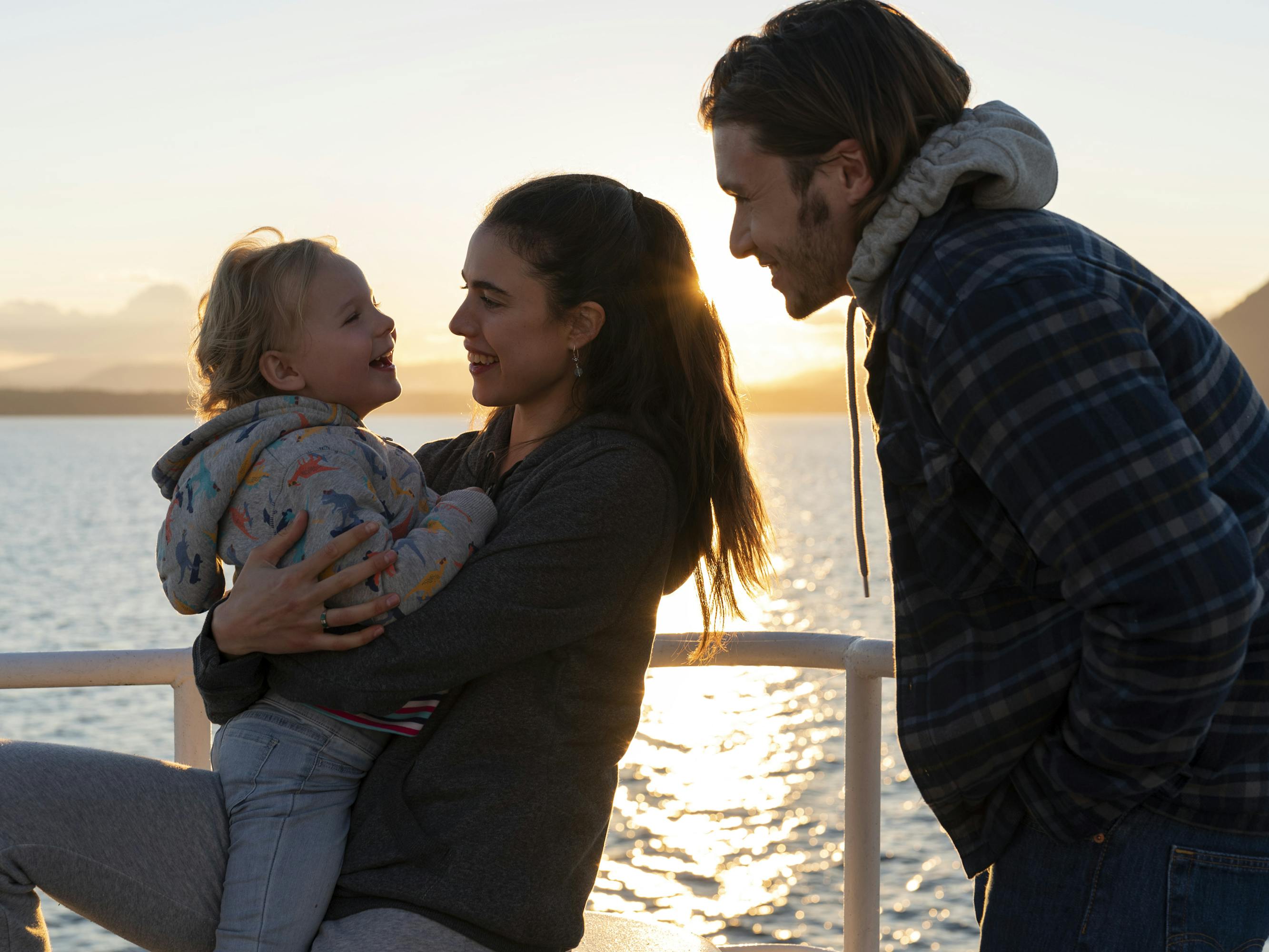
Maddy (Rylea Nevaeh Whittet), Alex Russell (Margaret Qualley), and Sean Boyd (Nick Robinson)
MR: I think something that always struck me about Alex’s experience and the source material of the book was the gray area where so many people operate. I feel like, in the last couple of years, there’s been so much more nuance added to things that have always been a little more straightforward onscreen.
A line that always struck a chord with me is when Alex is asked, “Well, did you file a police report?” And she’s like, “And say what, that my boyfriend didn’t hit me?” I mean, it’s things like that where I’m going, What would I do? Wait, does that count? It was kind of an educational process that I went through. I thought I was fairly well-versed on these kinds of issues, and I still didn’t really know what could be classified as domestic violence. There’s a huge educational aspect to this on the producing side, making sure we’re handling a lot of topics in the best way that we possibly could. I so appreciate and feel like it’s meaningful that there is this nuance.
MQ: Totally. It was a learning experience for me, too. A lot of times people are put in positions where they’re made to feel the way that they’re processing events — their reality — is inaccurate, that somebody else has the authority over their experiences, and that maybe they’re crazy for feeling a certain way because it’s not very clear what’s happening.
And it was really good practice for me — the circumstances were incredibly heightened and I’m an incredibly lucky human being — to gradually, over the course of 10 episodes, kind of learn how to stand up for myself. There was also something thrilling about standing up for myself on behalf of somebody else because, in Alex’s case, having Maddy makes it so much easier for her to have boundaries because there’s a certain quality of life that she has to get for her daughter. Sometimes people are made to feel bad for fighting for themselves, but it’s easily justified when you have a four-year-old.
MR: Alex goes on this real journey and just recognizing her self-worth feels like a huge part of that. And it happens for a lot of the characters in the show. It touches a lot of chords, and I’ve been so surprised with how many people this show seemed to really hit.
MQ: I was so surprised. I mean, can you believe it? It’s overwhelmingly positive, the reaction that it’s had, and I’m just still completely shocked and blown away. It’s a very sad drama. It’s really challenging to get through it and I’m shocked that anyone’s done it.
MR: I know. It was one of those things where I was like, The story is important and the people in Alex’s position, their stories need to be shared with the world. But I understand as a businesswoman that it’s going to be really gritty and raw, and people just don’t want that right now. We just have to fight to get it made anyway, just pray that it’ll hit a few people. And I’ve been so shocked with how many people [it’s reached], and people I wouldn’t expect, which was amazing. It felt important, but I was happy that it genuinely reached people on an entertaining level as well.
Switching gears a little bit, I just wanted to talk a little bit about all the people behind the camera on this project. It was important to us that most of our key members were women. How did you feel on set with the group that was assembled?
MQ: This is one of those stories that really should have women at the forefront because it is very female-experienced. I got to work with so many incredible artists, and working with the crew was honestly just the most rewarding experience for me and just so integral in telling the story and getting through a day. They were so invested. I love that group of people and I feel so lucky to have had them. The directors were some of my favorite directors that I have gotten to work with: Lila Neugebauer, who did Episode 5; Helen Shaver; Nzingha Stewart; and Quyen Tran, so many awesome people.
There’s a funny tidbit, which is at the end, [the crew] got tattoos on their butts that said “Barely MAID it,” and I thought that was the most terrifying and sweet thing.
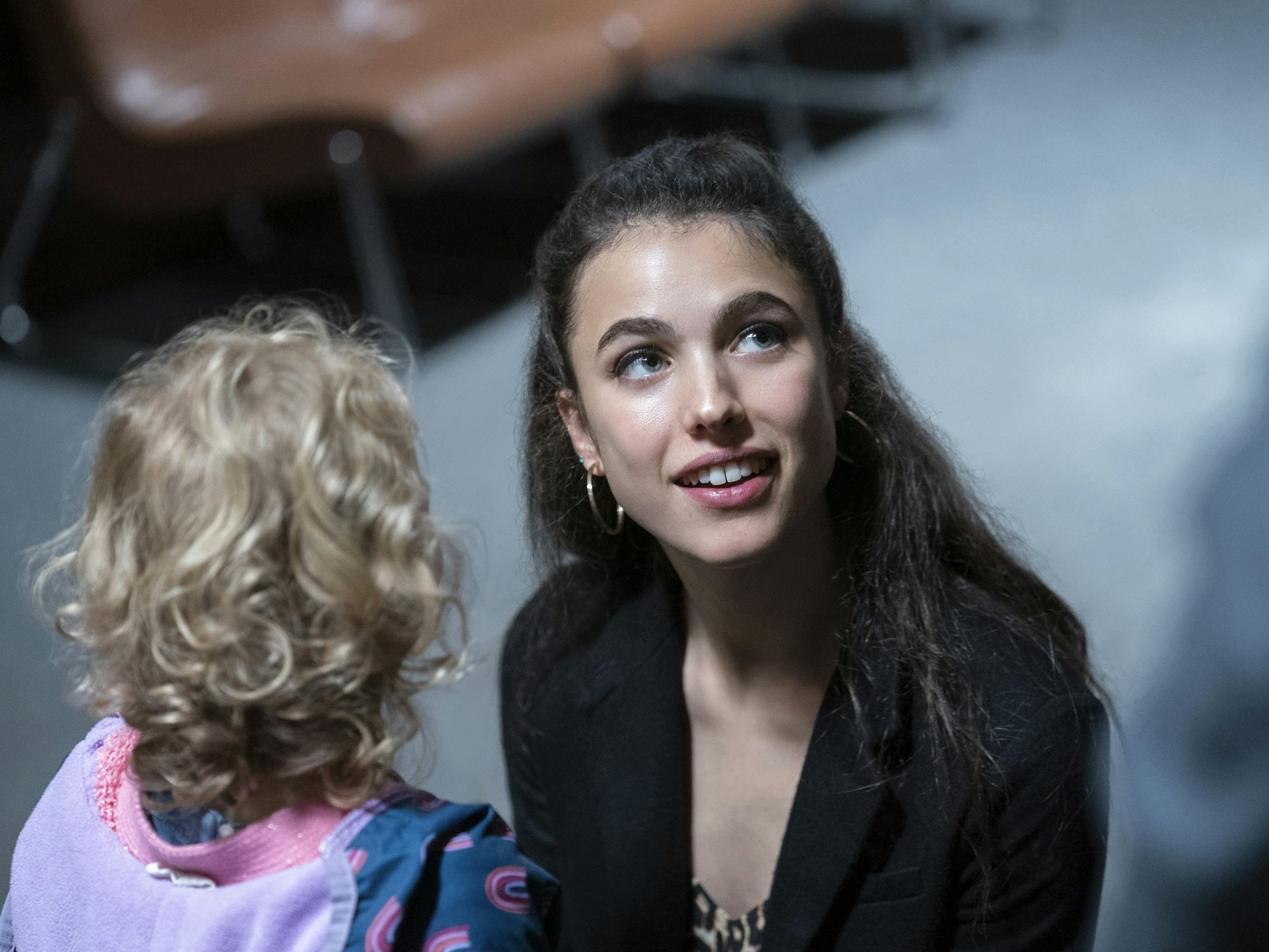
Maddy (Rylea Nevaeh Whittet) and Alex Russell (Margaret Qualley)
MR: And, of course, what we’re not saying but what we both know is so many incredible dudes were a part of this as well. I really don’t like the idea that some things are categorized as, It’s a female issue so it’s for the women to solve. Instead of, This is a human being issue and all the human beings should solve it together.
MQ: Right. If there’s a problem and a group of people is suffering from it more, then it’s not just that group of people’s responsibility to fix the issue.
MR: And, working with your mom: I’ll never forget getting the phone call from you saying, “Hey, what if my mum played my mum?” I was so excited by that, but I was also just so intrigued that you had that instinct and you knew, I think this is the time. I feel like when you get those instincts, you’ve just got to listen to them.
MQ: Yeah. I’m so lucky that you made it happen. I mean, not that anyone wouldn’t be excited about having my mom be a part of it — she’s an incredible actress and we should all be so lucky — but it was cool to call you and have you be so enthusiastic about it. I knew it would be special when I worked with my mom and I had it in the back of my mind that one day I would do that. I feel like one of the things that was reinforced through the pandemic was that things change all the time and you should go ahead and do the things that you want to do. So I was like, Why save this exciting thing for down the line when it may or may not even be an option if I could just go ahead and do it now? And also realizing just how rich the material was, and the mother-daughter relationship . . . It was so surreal and exciting to be able to do that.
MR: I love that you get the three generations onscreen. The fact that it felt as real with you and Rylea as it did with you and your mom, who is really your mom — that’s just a testament to you. What are some things that haven’t really come up that much that you thought, Oh, wow. I thought I was going to be talking about this tons and for some reason I haven’t been?
MQ: Honestly, I’m just shocked from talking about the show this much at all. I’m endlessly, pleasantly surprised about the turnout. I didn’t expect to be talking about it this much and I’m stoked that I have been.
MR: Then, of course, there’s the really nice icing on the cake to all this, that you’ve been nominated for all these amazing awards. And I know that’s absolutely not why you took on this role but I just hope you get your moment to be like, Wow, I worked really hard and it’s being recognized in this way. And I know you’re such a humble person so I know you feel this way as well, but it’s really a reflection of everyone, those crew members with tattoos on their asses. When everyone’s awesome, it really just means that everyone can do their best work.
As well as, obviously, I’m not the only person in the Margaret Qualley fan club. It’s good to know there are other members out there.
